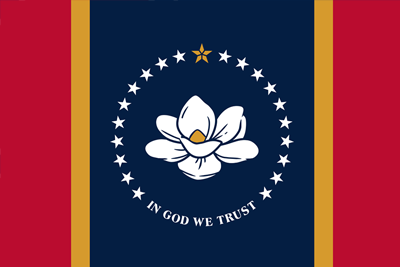Mississippi

Mississippi recognizes a right to privacy, and the tort of appropriation of name or likeness. It has not recognized a distinct right of publicity.
Statute
NO
Common Law - Right of Publicity
NO
Common Law - Right of Privacy-Appropriation Tort
YES
Mississippi recognizes a right to privacy and the appropriation branch of that tort for the wrongful appropriation of another’s identity. The Mississippi Supreme Court has expressly held that plaintiffs can recover for both emotional and economic damages, and has endorsed the Restatement (Second) of Torts approach.
Candebat v. Flanagan, 487 So. 2d 207 (Miss. 1986)
Deaton v. Delta Democrat Pub. Co., 326 So. 2d 471 (Miss. 1976)
Martin v. Dorton, 50 So.2d 391 (Miss. 1951)
Harbin v. Jennings, 734 So. 2d 269 (Miss. Ct. App. 1999)
Post-Mortem Right
No court has considered this question.
Limits on Right
Does the law require the plaintiff or identity-holder to be a celebrity or have a commercially valuable identity?
NO
So far, Mississippi courts have allowed misappropriation claims even when plaintiffs do not have commercially valuable identities.
Candebat v. Flanagan, 487 So. 2d 207 (Miss. 1986)
Deaton v. Delta Democrat Pub. Co., 326 So. 2d 471 (Miss. 1976)
Harbin v. Jennings, 734 So. 2d 269 (Miss. Ct. App. 1999)
Does the law protect persona?
No court has considered the issue.
Is Liability Limited to Uses on Commercial Advertising or Commercial Speech?
NO
Mississippi’s adoption of the Restatement approach means that the state likely has a broader understanding of the tort. At least one federal court has agreed with this reading of the law.
Johnston v. One Am. Prods., Inc., 2007 WL 2433927 (N.D. Miss. Aug. 22, 2007)
First Amendment Analysis
Mississippi courts have recognized First Amendment defenses to invasion of privacy claims, particularly on the basis of newsworthiness and matters of public interest. The Mississippi Supreme Court has noted, however, that not every form of expression enjoys “absolute constitutional immunity.” Speech is subject to restrictions when privacy concerns outweigh those of the public interest. Notably, a federal court in Mississippi rejected a First Amendment defense to a misappropriation claim in the context of a feature film.
Deaton v. Delta Democrat Pub. Co., 326 So. 2d 471 (Miss. 1976)
Johnston v. One Am. Prods., Inc., 2007 WL 2433927 (N.D. Miss. Aug. 22, 2007)
Mississippi sits in the Fifth Circuit Court of Appeals which has had occasion to consider the interaction between the First Amendment and Texas’s misappropriation tort. In Matthews v. Wozencraft, the Fifth Circuit held that the First Amendment protected the use of a person’s name and identity in a motion picture based on a true story.
Matthews v. Wozencraft, 15 F.3d 432 (5th Cir. 1994)
